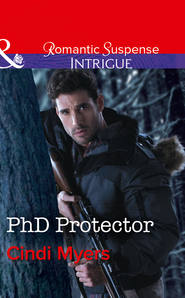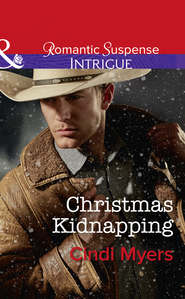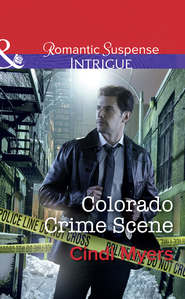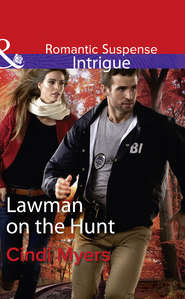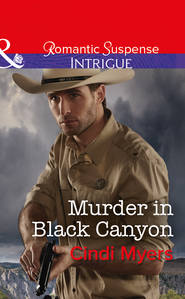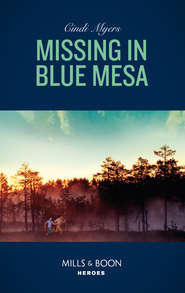По всем вопросам обращайтесь на: info@litportal.ru
(©) 2003-2024.
✖
The Daddy Audition
Автор
Год написания книги
2018
Настройки чтения
Размер шрифта
Высота строк
Поля
Maybe a walk would clear his head. He lifted Nugget’s leash from its hook by the door, and the dog bounded to him, eager for an outing. Jack thought again of Annie and her desire for a puppy. Would she tell her mother about his offer to let her visit Nugget? Would Tanya want to take him up on that offer or would she avoid him?
He set out on a popular hiking and biking trail into the foothills, pausing from time to time to let out the leash to allow Nugget to wade the creek or stick his snout down a ground squirrel hole. Jack suspected if an actual ground squirrel were to appear, Nugget would flee in terror.
He drew in a deep breath of clean mountain air and felt the tension ease from his shoulders. The fields around him were a riot of color—scarlet paintbrush, deep violet bluebells, yellow daisies and dozens of other flowers he couldn’t name. The spectacular display brought tourists from around the country to explore the trails in the area on foot or by bicycle; Jack felt privileged to get to enjoy the sight every day.
The world was full of people who were searching for a place like Crested Butte, a place with beautiful scenery, friendly people and plenty to do in any season of the year. He had never understood why Tanya had wanted to leave. Here in Crested Butte, she’d had a loving family, lots of close friends and the local version of fame. From childhood she’d been involved in the theater group and she’d starred in some of its most-loved productions.
And she’d had him, a man who’d loved her.
Obviously that hadn’t been enough. That knowledge, even more than the reality of her leaving, had cut deep. “I have the chance to be a real star,” she’d told him. “Why would you want to deprive me of that?”
He’d never meant to deprive her of anything. In fact, he would have given up the only life he knew and followed her to Hollywood and stayed with her.
But she’d never asked.
Nugget barked excitedly and tugged on the leash. An enormous white dog bounded toward them, dragging a man and woman along behind. As they drew closer, Jack recognized Bryan and Angela. “Her name’s Marshmallow,” Angela explained as Bryan reined the beast to a halt. “We just adopted her.”
“Nice dog.” Jack rubbed the fuzzy head. “How’s Zephyr?”
“He sprained his ankle, but he’s going to be fine,” Bryan said.
“Thank you for the scrims you did for the Red Lady’s Revenge,” Angela said. “They’re really beautiful.”
“No problem,” Jack said.
“Would you be interested in doing some more volunteering with the theater?” she asked. “We could use a guy with your skills.”
“I have skills,” Bryan said.
She gave him a heated smile. “Construction skills.”
“I hadn’t thought about it much,” Jack said. “I don’t know if I’d have time.”
“Think about it,” Angela said as Marshmallow yanked Bryan forward once more.
Jack continued up the trail, Angela’s suggestion reverberating in his head. Volunteering at the theater would mean spending more time with Tanya, not a wise move while his feelings for her were so unsettled. The pull of attraction between them after so many years had caught him off guard. He needed to figure out how to deal with that before he went any further.
ANNIE WASTED NO TIME telling her grandmother about the puppies at the festival. “Mama says I can’t have one, but since you’re her mother, if you say I can have one, she has to listen to you, right?” she asked with a winning smile.
Ruth Bledso arched one eyebrow and met Tanya’s gaze. “I always thought you were a brilliant child, dear, but she may have you beat.”
Tanya put a hand on her daughter’s shoulders. She’d learned early on that she had to stay on her toes to counter Annie’s reasoning. “I explained that Misty wouldn’t appreciate a younger dog invading her territory,” she said.
Ruth nodded. “Oh, no. She wouldn’t like that a bit.”
Hearing her name—and given that everyone had gathered in the kitchen—Misty trotted in to join them. A scattering of white hairs around her muzzle and eyes were the only hints of her age. Everything else about her said, “I’m just a puppy, eager for a treat.”
“Misty’s a nice dog.” Annie enveloped the golden retriever in a hug. “I don’t think she’d mind another dog at all. She’d probably appreciate someone she could talk to in her own language.” Misty swept the air with her tail and lavished doggy kisses on her young admirer.
Tanya had to admit Misty was a very easygoing dog. Her father had brought the pup home shortly after Tanya left for California. According to him, the pet had helped to fill the emptiness in her parents’ house and in their hearts, as well.
“I also reminded Annie that puppies are a lot of hard work,” Tanya said. “They need a lot of space and can be destructive to nice furniture and carpets.”
“That is true.” Ruth looked relieved.
“I’m sure glad nobody felt that way about me when I was a baby,” Annie said.
“You wouldn’t have peed on my carpet or chewed the furniture,” Ruth said.
“My puppy wouldn’t, either,” Annie protested. “I wouldn’t let it.”
“Your mother said no, so you need to listen to her,” Ruth said. “No puppy for now.”
Annie stuck her lip out in a pout, but knew better than to say anything more. “Come on, Misty. Let’s go to my room. I’ll read you a story.”
“Thanks for coming to the defense of my carpets,” Ruth said when the two women were alone.
“We’ve imposed upon you and Dad enough,” Tanya said. “I couldn’t see adding a pet into the mix.”
“You know we’re happy to help you,” Ruth said. “Especially if it means having you close to home again.”
Tanya took an apple from a bowl on the table and turned it over and over in her hand. When she was growing up, her family had picked bushels of apples from local orchards every fall and enjoyed them into the winter. Those were the kind of memories she hoped to make with Annie—memories that included a family dog. “I told Annie when the two of us have our own place we can get a pet,” she said.
“I have everyone I know keeping an eye open for a suitable rental for you,” Ruth said. “Ian put your name on a waiting list at the duplexes where he lives.” Tanya’s brother had a roommate to share costs in the complex in CB South.
“I appreciate everyone’s help,” Tanya said. “Maybe something will turn up soon.”
“It’s not because we’re anxious to get rid of you, of course, but because I know how much you want your own home.”
“After dealing with real estate prices in Los Angeles, I thought it would be easy to find an affordable place in Crested Butte,” Tanya said. When she was a child, plenty of old miners’ cottages and rustic cabins were available for less than the price of a new car today. “I knew prices had risen some, but I was astonished how much. The only places available are either renovated second homes or pricey condos.”
“Crested Butte isn’t the secret it once was,” Ruth said. “Everything is more expensive now. After he got out of the Marines, Ian searched for five months before he found his place.”
“I hate it.” Tanya set the apple aside. “Why did the people who live here let this happen?”
“It’s easy to romanticize the old days,” Ruth said. “But people forget about the lack of jobs and services back then. All the new residents and tourists have brought in a lot of money and jobs. Everybody is better off now.”
“I saw what focusing on money and progress did to people in L.A.,” Tanya said. “The people I knew there were constantly changing their looks and their jobs, even their friends, always searching for something bigger and better. All that…that shallowness made me realize how much I missed the stability and security of a place like Crested Butte.”
“New people and buildings don’t mean the heart and soul of this town has changed,” Ruth said.
“It feels like it has. Hardly anything looks the same as I remember. And there are so many people here that I don’t know.” Maybe it was unrealistic to expect the town wouldn’t have changed at all, but the longer she’d lived in L.A., the more fixed her image of Crested Butte had become as the perfect place. Its transformation into the picture-postcard village tourists raved about had left her feeling lost, as if there was nothing remaining that she could truly count on.
“There are a lot of people here you do know,” her mother pointed out. “And a lot of new friends, like Angela and some of the others from the theater.”
“I know.” Tanya nodded. “I guess I’m just out of sorts today.” Seeing Jack again this morning—a smiling, kinder Jack than the one she’d tangled with at the theater—had set her emotions spinning. He was one of the good memories she’d associated with the town, but like everything else, he’d changed, too, enough that he was almost a stranger to her now.
“All your life, you’ve been so certain of how things ought to be,” her mother said. “I don’t know where your perfectionist streak comes from, and I always worried it would lead to disappointment.”






